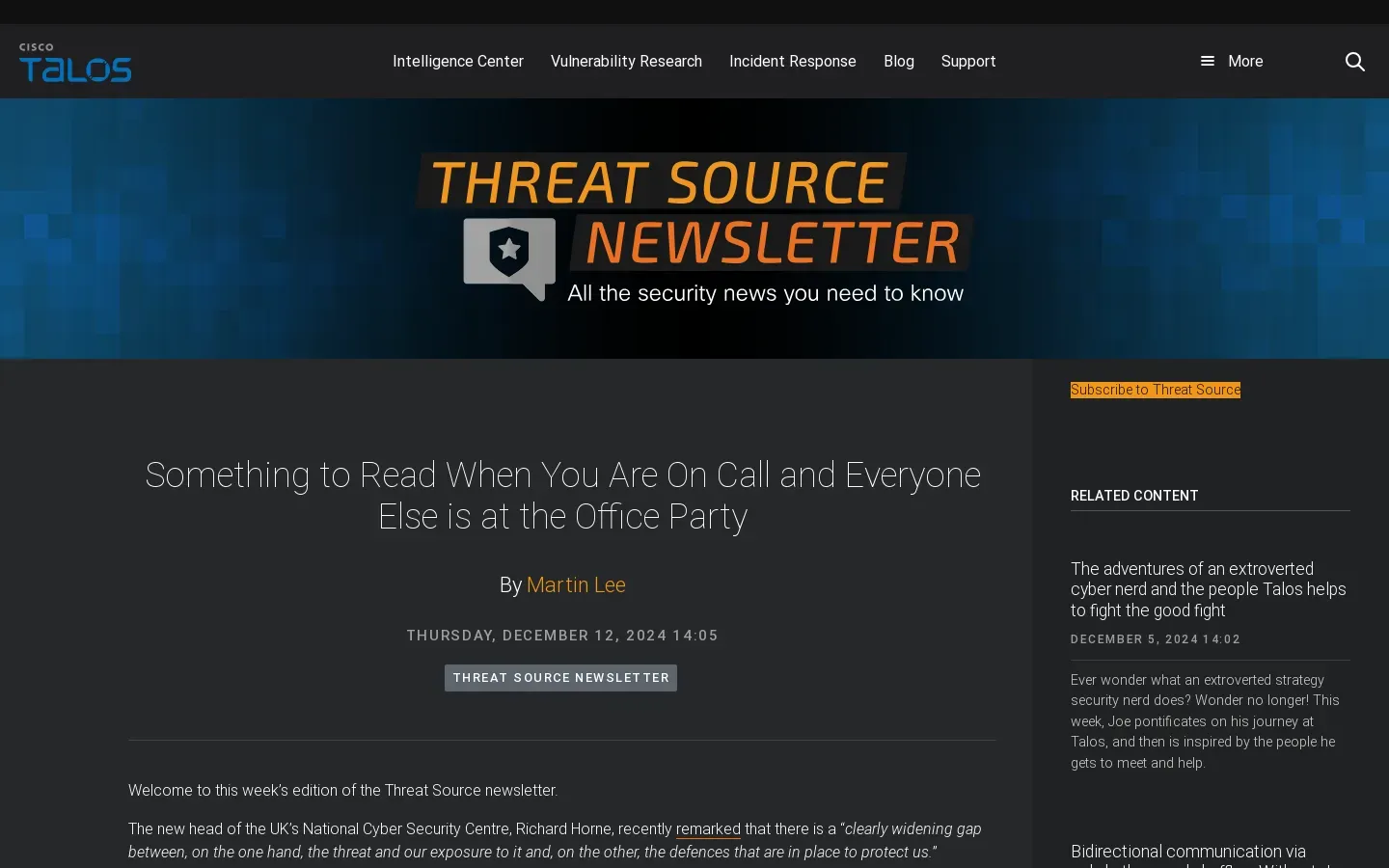
Richard Horne Becomes Head of UK's National Cyber Security Centre
/ 3 min read
Quick take - Richard Horne has been appointed as the head of the UK’s National Cyber Security Centre (NCSC) to address increasing cyber threats and vulnerabilities, emphasizing the need for improved defensive measures against sophisticated cybercriminal tactics.
Fast Facts
- Richard Horne has been appointed as the head of the UK’s National Cyber Security Centre (NCSC) amid rising cyber threats and vulnerabilities.
- Cybercriminals are increasingly compromising consumer and IoT devices to create proxy networks for malicious activities, complicating attack attribution.
- Compromised devices can lead to account takeovers, data breaches, and Denial of Service (DoS) attacks, impacting user security and system performance.
- The recent annulment of Romania’s presidential election due to cyber-attacks highlights the importance of cybersecurity in national security and democratic integrity.
- Recommendations for improving cybersecurity include applying security patches, changing default credentials, implementing Multi-Factor Authentication, and establishing bug bounty programs.
Richard Horne Appointed Head of the UK’s National Cyber Security Centre Amid Rising Cyber Threats
Richard Horne has officially assumed leadership of the UK’s National Cyber Security Centre (NCSC) at a critical juncture marked by escalating cyber threats. His appointment highlights the urgent need to address the widening gap between emerging cyber threats and existing defensive measures.
Rising Concerns Over Cyber Threats
In his initial statements as head of the NCSC, Horne underscored a worrying trend: cybercriminals increasingly target consumer and Internet of Things (IoT) devices. These compromised devices form vast networks of proxy systems, which are then exploited to route malicious traffic. This tactic complicates the identification and attribution of cyber attacks, posing significant challenges for cybersecurity professionals.
The implications of these compromised systems are extensive. Cybercriminals can execute account takeovers, gaining unauthorized access to user accounts and potentially manipulating or stealing sensitive information. The obfuscation of malicious traffic also facilitates phishing attacks, allowing attackers to disguise their true intentions and origins, making it difficult for users to recognize fraudulent communications.
Far-Reaching Implications
The use of compromised devices as proxies can lead to significant data breaches, as attackers may exfiltrate sensitive data without detection. Furthermore, these hijacked devices can be employed in Denial of Service (DoS) attacks, overwhelming targeted systems and resulting in service disruptions. Users of compromised devices may also notice reduced system performance due to the theft of their network and CPU resources, significantly impacting their ability to utilize their technology effectively.
In a related context, the first round of Romania’s presidential election was annulled following allegations of foreign influence and cyber-attacks targeting electoral data. This incident underscores the critical role that cybersecurity plays not only in national security but also in the integrity of democratic processes.
Strategic Recommendations for Mitigation
As the NCSC moves forward under Horne’s leadership, several strategies are recommended to mitigate these growing threats. Organizations and individuals must ensure that all security patches are applied promptly to their systems to address potential vulnerabilities. Changing default or easily guessable credentials can also significantly bolster security measures.
Implementing zero-trust principles for user authentication, particularly through Multi-Factor Authentication (MFA), is essential to safeguard sensitive data. Organizations should verify that any connecting devices adhere to established security policies before granting access to corporate networks.
To proactively identify and address security vulnerabilities, establishing a bug bounty program is suggested as a proactive measure. This program could encourage ethical hackers to test systems and report weaknesses, ultimately strengthening overall cybersecurity defenses.
As Horne takes charge of the NCSC, closing the gap between cyber threats and defenses will be paramount in ensuring the safety and security of the UK’s digital landscape.



